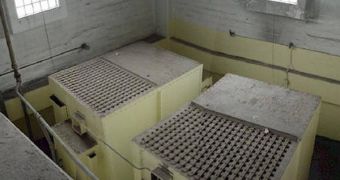Correction facilities around the world have a variety of methods to keep their inmates in check, and one of these methods, which was very popular until not so long ago, was to throw them into solitary confinement. Basically, what this means is that the men and women were placed inside small concrete boxes, some of which were too reduced in size to allow them to even stand. There is no natural light in these cramped-up cells, only the fluorescent one, which shines around the clock. The prisoners have little-to-no contact with other people, and, most of the time, they only speak to the guards for a few seconds per day.
Prison wardens say that experiencing solitary confinement one time is usually enough to incite a more cooperative behavior among prisoners, but statistics show that this is not the case. In fact, psychologists share, it may be that living alone drives certain prisoners mad altogether, on account of the fact that, deep inside, humans are all social creatures, unaccustomed to forcefully living alone. The lack of sunlight and of the possibility to exercise also take a heavy toll on the morale and the mind of the prisoners.
More than 25,000 American inmates are in this very moment kept in solitary confinement by prison authorities, under various pretenses. Actually, the United States is the only developed country in the world to still use this torture method on its prisoners. And various experts in the field tell that some of the people who are detained in this manner actually perceive the small cell as a means of torture, no different than water boarding, or sleep deprivation.
University of California in Santa Cruz (UCSC) Psychologist Craig Haney told Wired reporters that one of the most significant effects of isolation was panic, as inmates became delusional, and even paranoid. In addition, the people who are locked inside the cramped-up cells experience a sharp decline in cognitive processes, simply because there is nothing to stimulate their brain inside a concrete box. They are also deprived of their regular activity routines, which makes the prisoners again feel insecure and afraid.
“Human beings are socially connected organisms. It’s only when people are deprived of that connection that how much we depend on feedback from other people and contact becomes apparent. And all but the most resilient people begin to experience various forms of deterioration in the face of it. I’m not suggesting that everyone doesn’t recover, but not all of them do,” Haney explained in the interview.

 14 DAY TRIAL //
14 DAY TRIAL //